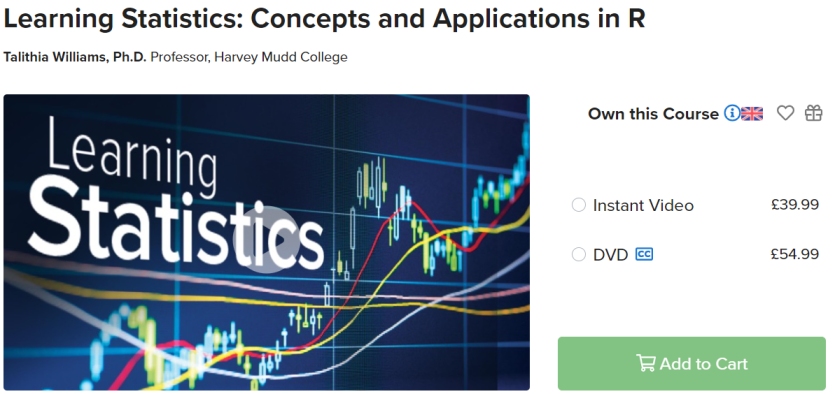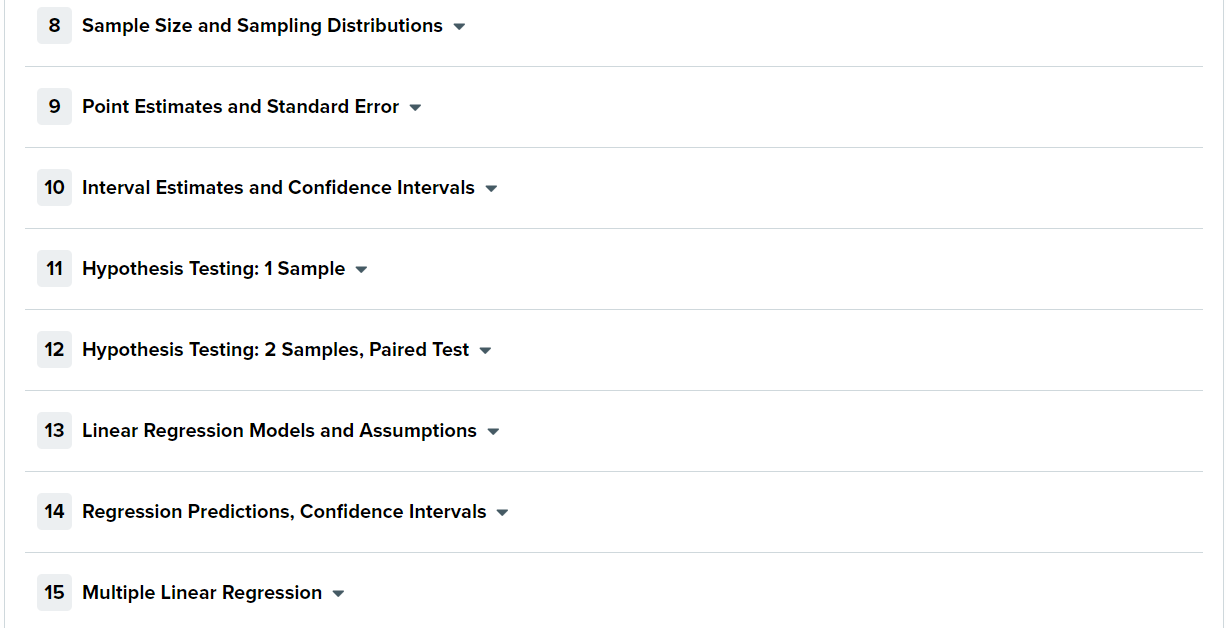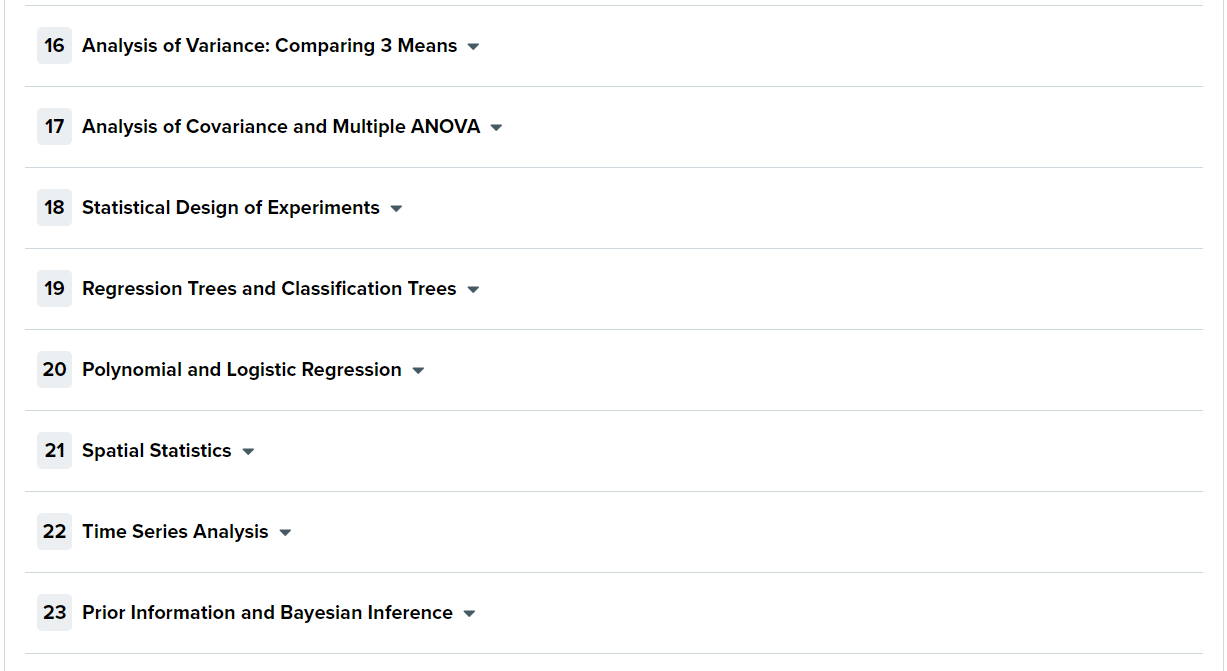Description
Learning Statistics: Concepts and Applications in R. The ability of statistics to extract insights from random sets of facts is one of the most amazing and useful feats of applied mathematics. This power is most accessible today through the statistical programming language R, a free and open-source computer language with millions of users worldwide, from students and non-professionals to managers and researchers at the forefront of their fields. In this era of big data, with a thorough understanding of statistics and data interpretation tools, you don’t have to rely on other people’s analysis of medical treatments, financial returns, product returns, voting trends, house prices, or any other interpretation. You can do this yourself from the data. For those who appreciate math or want an introduction to an essential toolbox for thinking about the uncertainty inherent in all kinds of information, Teaching Statistics: Concepts and Applications in R introduces you to basic statistical methods and how to apply them. It learns in R that it is built. It’s even more powerful when combined with RStudio’s user interface. (Both R and RStudio are free and downloadable for multiple platforms.). In 24 challenging and in-depth half-hour lectures, award-winning Professor Talithia Williams of Harvey Mudd College walks you through the core concepts of an introductory statistics course at the college level and beyond, using examples developed and presented in R. is, guides. Canned statistical packages bring R users to a more practical and engaging approach that is becoming the standard in high-level statistical programs across the country. Dr. Williams is Associate Professor of Mathematics and Associate Professor of Research and Experiential Learning at Harvey Mudd, a nationally recognized innovator in statistics education, noted for his popular TED talk, “Own Your Body Data,” and he is a is one of the hosts of this program. PBS series NOVA NOVA Wonders.
Are you ready for a new approach to statistics? Professor Williams presents the most commonly used statistical measures, concepts, and techniques: how and when to use them, what they mean, and how to recognize when arguments or conclusions based on statistical data are questionable or wrong. Learning statistics will be especially useful for those who want to go beyond the beginner level and gain a deeper and more complete understanding of the field. And for anyone who learned statistics years ago, this course provides an up-to-date experience of what’s happening in the field today and how user access to the R programming language is changing the everyday practice of statistics. Professor Williams has organized this course so that it can be followed straight through, from basic descriptive statistics to standard and advanced techniques in statistical inference. Those with experience in other statistical software may also find this progression very useful, while students looking for help in specific areas can jump in and out at any point in the course. Dr. Williams describes it as his life’s work to excite students, parents, educators, and society at large about mathematics, and statistics in particular, as a “powerful framework for thinking—for gaining insight and solving problems.” As in his TED talk, which has been viewed over a million times, Dr. Williams has a knack for demystifying statistics and making them relatable—because whenever you hear a statistical argument that directly affects health, livelihoods, independence, or self-sufficiency, It affects you. Your strong convictions should say, “Show me the data and I’ll make up my own mind.” With this course you will be able to do exactly that.
What you will learn in the Learning Statistics: Concepts and Applications in R course
- How to use R and RStudio; How to import and export data, write code and generate graphs. How to customize R features
- Basics of descriptive statistics: eg, normal distribution, central limit theorem, correlation.
- Basics of statistical inference; For example, hypothesis testing, regression, ANOVA.
- Advanced topics: eg, experimental design, spatial statistics, time series analysis, Bayesian inference.
Characteristics of the course Learning Statistics: Concepts and Applications in R
The headings of the course Learning Statistics: Concepts and Applications in R
Course images

Sample video of the course
Installation guide
After Extract, view with your favorite Player.
Subtitle: None
Quality: 720p
download link
File(s) password: www.downloadly.ir
Size
8.7 GB


